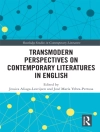The 'Complete Works of Henry James: Novels, Short Stories, Plays, Essays, Autobiography and Letters’ serves as a monumental compilation of James’s literary oeuvre, showcasing his intricate exploration of consciousness, identity, and the moral complexities of the human experience. His brilliant prose style, marked by a distinctive attention to psychological nuance and sophisticated narrative techniques, challenges readers to engage deeply with often ambiguous moral terrains. The contextual richness of his writing reflects the tension between American and European sensibilities during the late 19th and early 20th centuries, with works such as 'The Portrait of a Lady’ and 'The Wings of the Dove’ exemplifying his ability to weave intricate relationships against broader cultural backdrops. Henry James (1843-1916) was a pivotal figure in the evolution of literary modernism, enriched by his transatlantic experiences and fluency in both British and American social landscapes. His upbringing in a prominent intellectual family and his extensive travels informed his perspective, leading to a fervent investigation of themes concerning personal and societal transformation. It is this intricate understanding of human psychology and societal dynamics that enabled him to craft narratives that resonate with both profound insight and emotional depth. This comprehensive collection is indispensable for readers and scholars alike, offering an unparalleled opportunity to traverse the full spectrum of James’s genius. Engaging with this anthology not only enriches one’s understanding of literary history but also invites contemplation of timeless existential queries, making it a cherished resource for anyone interested in the complexities of the human condition.
O autorze
Henry James (1843–1916) was an eminent writer, regarded for his contributions to 19th-century literary realism and psychological insight. Born to a wealthy and intellectual family, his education spanned both the United States and Europe, providing him with the transatlantic perspective that greatly influenced his writing. As a prolific writer, James penned numerous novels, short stories, plays, essays, and an autobiography, all of which are compiled in his 'Complete Works of Henry James: Novels, Short Stories, Plays, Essays, Autobiography and Letters’. His literary artistry is characterized by a keen perception of character and social settings, often delving into the consciousness of his characters through an innovative narrative style known as 'stream of consciousness’. Notable works like 'The Portrait of a Lady’, 'The Wings of the Dove’, and 'The Ambassadors’ highlight James’s dexterity in exploring complex themes such as morality, freedom, and the clash between the Old and New Worlds. His later works became more complex and ambiguous, reflecting his evolving literary technique. James’s contributions were acknowledged when he received the Order of Merit from Britain, and to this day, he remains a defining figure in the canon of American and British literature. His influence endures in the detailed psychological depth found in modernist and post-modernist literature.












